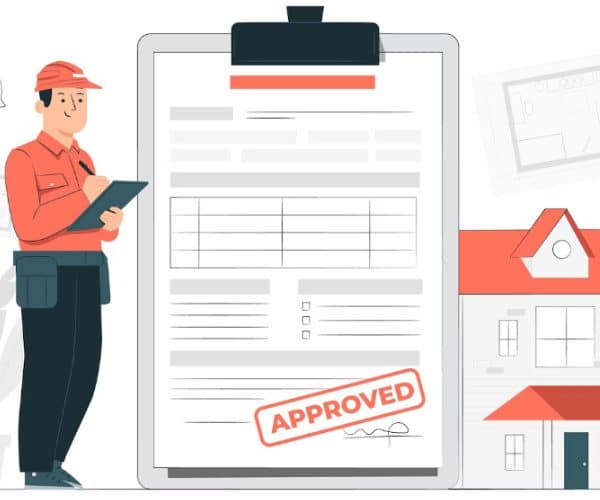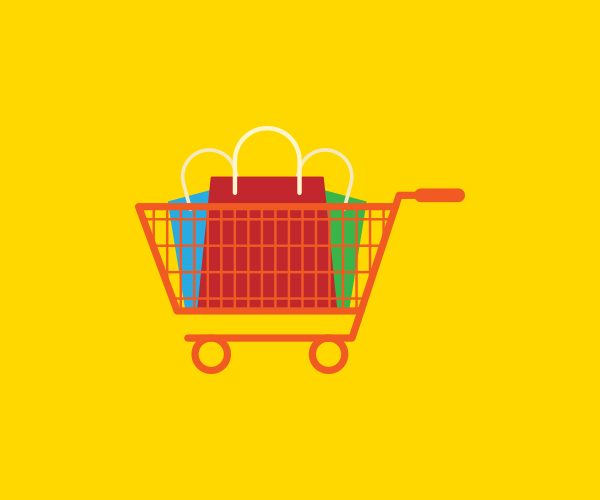A private label is a product that is produced by a third-party manufacturer to be sold by a retailer under its own name. This means that retailers may place the order to the manufacturers, and sell the products to the consumers.
Retailers can state the product specifications, packaging and labeling type and style, and the quantity of order. This way, retailers can offer an exclusive range of products to customers,
Readers may confuse private labels with white labels. Before moving to the details of a private label, let’s first differentiate it from the white label.
Difference Between Private Label/Brand and White Label

The following are the main differences between a private label and a white label:
- Private label products are manufactured exclusively for one retailer. On the other hand, white label products are generically produced by manufacturers and sold to multiple retailers to sell further to consumers.
- Retailers have full control over the production of a private label product. Whereas retailers don’t have much control over white label products except for minimal customization.
- The cost of production of private label products is moderate to high. On the other hand, the cost of white label products is generally low as it is manufactured on a mass level.
- Private label products are sold by retailers that have a loyal customer base for the brand or a certain product. Whereas, white label products are usually used by retailers that want to enter or explore a certain market.
- Sephora Collection may be one of the examples of a private label product. It includes several skincare and makeup products that can only be purchased from Sephora.
- Coffee may be an example of a white label product. Often, coffee shops purchase beans from a single roaster, rebrand it and sell it under their name.
Types of Private Labels
There are four main types of private labels:
- Generic Private Labels
- Copycat Private Labels
- Premium Private Labels
- Value Innovator Private Labels
Let’s learn about each in detail:
Generic Private Labels
Generic private labels are the most basic type of private label brands. The main objective behind these products is to provide customers with low-price options which helps in expanding the customer base.
These products have simple and minimal packaging and the product may not be necessarily of high quality. This is why such products mainly target price-conscious customers.
The shelf placement of these products at the outlets is not very visible and is placed mostly on the back shelves.
Examples of generic private label products can be mobile phone covers, soap, and even water.
Copycat Private Labels
Copycat private labels copy the namesake brands to the maximum but are available at a lower price.
The main objective of selling such products is for retailers to better negotiate with manufacturers over price because now they have an increased share of category profits.
These brands position themselves as providing experiences close to the original product at a better price for customers. Such products may or may not have the same quality and generally are next to the brand leader.
Examples of copycat private labels may be Osco Vitamins and Tesco products.
Premium Store Labels
Premium store labels offer quality at par with the original brand or even better in some cases. They offer value addition to the products and have prices the same or higher than the brand leader.
Premium store labels may also follow consumer trends like gourmet or organic foods. If properly marketed, these products can increase category sales and profit margins. In a retail outlet, these products are placed at eye-catching locations.
Examples of premium store labels may be Godiva, The Body Shop, Marks & Spencer’s St. Michael, etc.
Value Innovator Private Labels
Value innovator private labels offer products that are unique yet cost-efficient for customers. The quality of these products is at par with the brand leaders
Retail stores may offer discounts up to 20% to 50% in comparison with the brand leader’s prices. This makes them a good option for customers looking for unique products at cheap rates.
Customers can find these products placed almost all over the stores, with no specific positions.
Examples of value private labels may be Aldi, Kmart, etc.
Benefits of Private Labeling
The following are some of the major benefits of private labeling:
Create Distinct Product Lines
Private labeling allows brands to create distinct product lines under their labels. Any brand that succeeds in this can create a recognizable place in the market and with customers.
This happens by standing out against rival brands and selling quality products to customers that demand upscale products at reasonable prices.
This also gives retailers brand control because with their services they can control brand image and value.
Builds Customer Loyalty
Developing a loyal customer base is one of the keys to long-term success for a business. Private labeling can be one of the ways to get customer loyalty.
This is because these products aren’t available on every other retail outlet. Such products are manufactured exclusively for a retailer.
This means that if customers like the product, they will have to come back to the same retailer to purchase this product.
The secret behind this is to maintain product quality so that customers get served what they want and keep coming back for more.
Increase Profit Margin
Due to high brand control, retailers can set the prices of private label products without pressure from other supply chain parties. This means that the expenses on production, packaging, labeling, and delivery can be covered by the retailers by setting a high price.
For this, retailers usually play on the uniqueness of the product as it is exclusively available at their outlet. Depending on the type of product and level of customization, retailers may earn more profit than from resale products.
High Stability
Private label products can give higher stability to retailers as compared to resale products. This is especially true during low economic activity.
One reason is that customers don’t have a lot of options to compare prices. This is why they purchase the product from this retailer.
The name brands may face low sales because of high comparative prices. Private label products have lower prices, hence they may provide more stability to the business.
Price and Marketing Control
Private labeling gives retailers greater control over pricing and marketing strategies. The reason is that these are exclusively manufactured products, so retailers can set the prices for consumers.
Other than pricing, marketing is also under the retailer’s control. If they have spare capital, a robust marketing campaign can help with the sales.
Otherwise, product placement and a few posters can also make up for adequate marketing. Retailers have the freedom to curate their own marketing campaigns and don’t have to follow the traditional strategies of name brands.
Improve Business Adaptability
Private labeling can become a source of higher business adaptability. A name brand will have to take a long time to research if it wants to make a change to a product or launch a new one.
This is because the scale of production is high and so are the stakes. With private labeling, the production volume isn’t always large. For this reason, retailers can communicate the negative reviews to the manufacturers and make changes accordingly.
Private labeling, despite its many benefits, can become a challenge for businesses.
Are there any Disadvantages of Private Labeling?
Here are some of the disadvantages of private labeling:
Minimum Order Quantity
Private labeled products are made on custom orders. For this reason, manufacturers usually set high MOQs (Minimum Order Quantity) to reduce their cost per unit of production.
This is especially a challenge for businesses that are outsourcing the production of these private label products. In this case, businesses may not have the freedom to purchase their required quantity.
To cover the MOQ, businesses may have to purchase more than the required quantity. In case of low sales,this can lead to excess inventory.
Low Profit Margins
Private labels, especially generic, copycat, and value labels, have to keep the prices of products low. This is because the market assumption is that private label products are affordable.
To keep the sales high, businesses have to set low prices. The prices may go even lower if there is competition in the market.
In this case, businesses will reduce prices to attract more customers. This may increase the sales but reduce the profit margin.
Negative Quality Perception
Some consumers may still have a specific perception that private label products are low quality. In comparison, the brand label products have better quality ingredients. Such perceptions may be due to two main factors. The first is that private label products are priced lower than branded products, decreasing their value.
The other reason is that the packaging of private label products doesn’t equate with that of branded products. This perception is one of the reasons private label products have low sales.
Increase in Unsold Inventory
In case of low sales, businesses may end up with lots of unsold inventory. This usually happens if a business doesn’t do proper research before ordering a line of products.
If the customers aren’t inclined towards these products, the sales may not be high unless the product is completely different from the others available.
Even this may not guarantee high sales. This is why, before a line of private label products is ordered, businesses should check its sales feasibility. Otherwise, the accumulation of unsold inventory may become a huge burden on business finances.
Delays in Order Processing
Delays in order processing are almost a norm in the private label industry. Retailers may find it hard to identify manufacturers or suppliers that are reliable with respect to product quality, packaging, and timeliness.
Many times, manufacturers and suppliers delay production and deliveries. This is mainly due to raw materials and labor shortage, and high volume of orders.
Another reason for delays may be that retailers may not find exactly what they need in a manufacturer/supplier. Due to this, they may take more time to find the right one or adjust to the current one’s conditions.
Legal Issues
Private labels may have to face legal issues if they don’t adhere to the concerned regulations. These regulatory obligations may be related to intellectual property, product quality and safety standards, and packaging requirements.
Failing to adhere to them can land the label in legal trouble. These troubles can range from fines to product recalls, damaging brand reputation.
Conclusion
Private labels can earn retailers not just profit but a healthy reputation among customers as well. The need is to venture into it carefully.
Retailers should first research which products they can invest in, which products can the customers purchase, and which ones can cover the manufacturing and packaging expenses.



